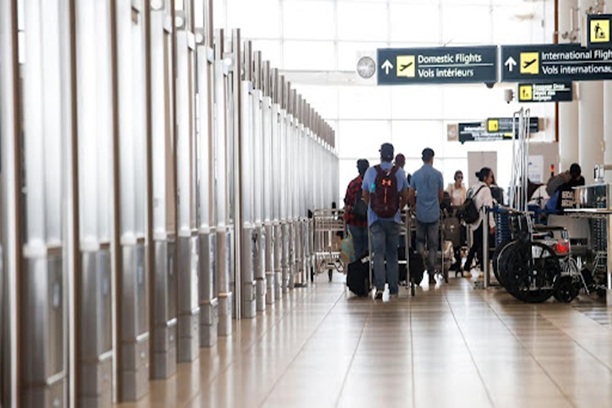

Travellers make their way through Winnipeg International Airport. (The Canadian Press)
Immigration lawyers and applicants are raising alarms about Canada’s immigration system. Many people say they receive refusal letters that don’t make sense. They worry their files are not fully reviewed by a human officer. The complaints focus on Immigration, Refugees and Citizenship Canada’s (IRCC) growing use of computer-assisted tools.
Toronto lawyer Mario Bellissimo says he saw cases where officers ignored key documents. He cited one refusal for a missing birth certificate, even though the document was included.
“It worries me as an applicant and as a lawyer for an applicant: what is actually being looked at?” Bellissimo said.
Former immigration officer and now consultant Annie Beaudoin agrees. “Refusals should never breach procedural fairness,” she said. “The officer must look at every single document. Lately, there is evidence that is not done.”
IRCC admits it uses programs to sort and process applications faster. It denies those programs affect the depth of reviews. In a statement, IRCC said, “Decisions about whether an applicant meets these requirements are made by highly trained officers who assess each application against the relevant program criteria.”
The department stresses only human officers make final decisions. It says officers receive training to review applications “carefully and systematically.”
IRCC has faced heavy pressure to reduce backlogs. As of July, more than 2.2 million applications were in the system, with over 900,000 delayed. To manage, IRCC turned to advanced data analytics in 2018. The system uses machine learning to identify patterns and help officers sort cases faster.
IRCC also introduced Chinook, a spreadsheet tool that lets officers process cases in bulk. The department insists Chinook doesn’t use artificial intelligence and doesn’t make decisions. But lawyers argue the tool risks rushed reviews.
Bellissimo says he has seen files processed in just minutes. He believes that undermines trust in the system. Vancouver lawyer Will Tao warns officers can issue bulk refusals or approvals, sometimes up to 150 cases at once. “This bulk and blanket treatment of individuals definitely has had a negative impact on the system,” Tao said.
The system has personal consequences. Montreal resident Chandni Ajwani married Indian citizen Jay Dave in 2023. Dave applied for a visitor visa while waiting for spousal sponsorship. An officer rejected his application, citing low funds and doubts about temporary stay.
Ajwani and Dave say they submitted proof of income. The refusal notes didn’t mention their marriage or sponsorship. After asking for reconsideration, Dave’s visitor visa was finally approved in March 2025.
Ajwani says the first refusal left her angry. “The sad part is I know that’s not how Canada functions. Our immigration system is quite fair,” she said.
Despite criticism, IRCC says technology will remain central. It calls these tools “essential to modernizing our immigration system.” Lawyers, however, continue to warn that speed should not replace fairness.
Having an 'Identity Verified' badge or being 'Identity Verified' simply indicates that an individual has submitted information to complete our identity verification process or we have conducted internal verification using various authorized websites. While this process includes safeguards, it does not guarantee that the person is who they claim to be.
If you encounter any issues with this profile, please report them here. While all consultants who are verified have RCIC ID, we may not have the latest data in terms of their renewal/cancellation/discontinuation of their RCIC ID.
The "Verified Consultants" profiles are created using publicly available information, including data from the IRCC website, official consultant sites, other listing platforms, and social media. Immiperts.com is an independent platform, not affiliated with IRCC or any registered immigration consultants. To update, claim, or remove your profile, please contact us at [email protected].
╳